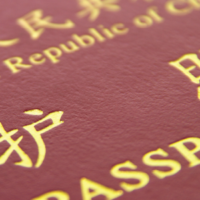
In 2015, ACAMS’ European account manager David Sanchez Lopez, based in France, met Stéphanie Gibaud at an ACAMS networking event in London, U.K. The ACAMS France Chapter is always keen to invite personalities who play a major role in any area linked to compliance matters and was therefore very excited at the mere thought of talking to Gibaud about her experience as a whistleblower.
In the collective mind, the one who “blows the whistle” is a kind of Robin Hood who dares to attack the system. He or she is very ethical, has strong moral values and wants the community to be informed of all sorts of wrongdoings and malfunctions taking place behind the curtain and behind its back.
However, reality is far from glamourous. When meeting Gibaud, the chapter realized a whistleblower is a person who effectively proclaims secrets from the rooftops but at the same time, jeopardizes their whole life.
Every case is its own and the mere nature of the alert, the sector concerned or the locale seem to play a prominent role. The secret data of the leak can turn out to be financial information; everybody remembers the Panama Papers and the Paradise Papers. It might relate to scandals in the medical field or to corruption at the state level. It can relate to bad treatment within the army or to financial misuse of resources allocated to an embassy. The disclosure of activities where information on illegal activities is being kept secret will do.
Whistleblowers can be anyone. They can be you and me. They can be found at any level of the social scale. They have something in common though: an above average consciousness of their citizenship that nearly always gets them into private and public troubles.
What happened to Stéphanie Gibaud?
In March 2018, the chapter had some difficulties locating Gibaud as she had changed her known location. After weeks of unfruitful attempts to contact her, the chapter was about to give up on having her speak at a conference when she unexpectedly called back.
The chapter met Gibaud, their French Erin Brockovich,1 at 8 a.m. The good-looking mother of two was very elegant and full of energy. She joined the chapter for breakfast at a hotel near the Eiffel Tower and explained that she knows Paris very well because she used to work and live in the city, just around the corner from the event. “I had a comfortable life before all that happened, 10 years ago,” she said.
She previously had professional status, financial security and traveled around the world to represent the bank where she was formerly employed. The chapter was astounded by her professionalism.
She explained, “As a public relations specialist, if I had shredded the documents UBS (France) SA suddenly asked me to destroy in 2008, I could have risked prison. I was working for the UBS marketing department and had absolutely no idea of the scope of the documents I was supposed to get rid of. Searches were taking place; I refused to be part of illegal activities and blew the whistle internally. Weakened by the harassment I was suffering at UBS, I was targeted by the French state in 2011 and, constrained by the law I was obliged to communicate confidential information to the Ministry of Finance, which has widely helped to identify numerous offshore bank accounts.”
The Swiss wealth management bank “UBS AG” created UBS SA in France back in 1999. The Swiss market was limited and the bank wished to develop its activities abroad. However, in the summer of 2007, the head of internal audit of UBS (France) SA shared his suspicions with several local executive management team members.2 He suspected that various Swiss portfolio managers convinced French wealthy clients living in the nation into investing in Switzerland, where—at the time—banking secrecy was still very strong and, in doing so, promoted tax evasion. Internal audit could not reconcile the gap detected between funds officially collected and the amounts taken as a basis to calculate the bonuses of some of these portfolio managers. This gap aroused suspicions.
Shortly after, an anonymous letter concerning UBS (France) SA landed on the desk of the French supervisor.3 The agency started an investigation. A sanction of 10 million euros and official charges were filed against the French subsidiary of the Swiss bank as a result of the investigation.
Gibaud refused to follow the orders of her management to destroy data and ended up lodging a complaint against her employer. In doing so, she became part of the whistleblowing process.
A Schizophrenic System
The information Gibaud exposed largely helped the French Ministry of Finance identify 38,000 offshore accounts, held by French citizens, worth 12 billion euros. This is what Gibuad said and this is what the chapter heard the French finance minister say on TV during her presentation. The minister looked her in the eye as he thanked her for her worthy contribution.4
One would think the French state would be grateful for such an unexpected “coup” and would help Gibaud find a new position after she was laid off by her former employer.
Nothing was further from the truth. Today, Gibaud is in a precarious situation. Her every attempt to dive into the employment market again has failed. Financial institutions and other employers probably fear she will blow the whistle on them.
On the one hand, Gibaud has received numerous accolades. It seems society does recognize the value of her contribution to the community at large and has granted her
various opportunities to highlight her heroic actions. “After publishing my first book in 2014, La femme qui en savait vraiment trop,5 I received the Anticor prize and was nominated for the Sakharov prize with Snowden6 and Deltour7 in 2015,” she recalled. On a political and judicial level, she receives great attention from the French authorities. In 2015, she was invited to speak in parliament in Brussels within the frame of the “Tax Rulings” commission.
Nonetheless, Gibaud remains totally isolated. She fights to make a living. On her situation, she said, “I am not employed at any job. In other words, in our society, I am a no-one.” However, she very quickly adds, “I won’t give up. I will keep fighting. I have just created my own structure.”8
Would Stéphanie be better off if she were an American citizen?
“Disclosing wrongdoing can be a daunting undertaking that can lead to a loss of livelihood and professional marginalization. In addition to the stigma that may be attached to blowing the whistle, employees may also fear financial and reputational degradation. In order to curtail these potential losses and encourage individuals to come forward in the detection of wrongdoing, countries have introduced various incentives, ranging from tokens of recognition to financial rewards,” said the Organization for Economic Co-operation and Development (OECD).9
Bradley Birkenfeld can give evidence of the “financial rewards” mentioned in this OECD report. Birkenfeld was the UBS wealth manager who blew the whistle on illegal offshore accounts held in Switzerland by U.S. citizens, and as such, closely resembles the U.S. counterpart of Gibaud. Birkenfeld’s disclosures to the U.S. government triggered an investigation against UBS, which was suspected to have enabled tax evasion by U.S. taxpayers. In February 2009, based on the information given by Birkenfeld, the U.S. Department of Justice announced, “The successful negotiation of an agreement that…result[ed] in the IRS receiving an unprecedented amount of information on United States holders of accounts at the Swiss bank UBS.”10 A deferred prosecution agreement was reached with UBS. A total of $780 million in civil fines and penalties was paid by UBS. The release of previously privileged information on American tax evaders was included in the package.
Just a “tiny” difference between Birkenfeld and Gibaud: as a result of the financial repatriation facilitated by his whistleblowing, Birkenfeld received a $104 million award from the IRS Whistleblower Office in September 2012.11
Gibaud would definitely be better off if she were an American.
A Law to Protect Whistleblowers
Two different stories, two different places, two different endings. As is often the case, the story of a corruption scandal is initially heard via the media and people tend to only pay attention to the headlines until they meet someone who is involved in its unfolding. That is when people start becoming aware of the fine print of their legal system and how those rules might one day affect them.
To adequately assess the treatment of whistleblowers in your specific country, consider the following criteria: financial rewards, protection of whistleblowers, anonymity, internal vs. external reporting processes, etc. French legislation seems to cover each of these aspects, except financial rewards.
Whistleblower protection was integrated in France in the Sapin 2 law.12 The law says that to blow a whistle you need to adhere to the following procedure: you must inform your manager and if they do not react, inform the authorities. If nothing happens within a month, you can go public with your whistleblowing or you can contact the defender of rights.13 The anonymity of the whistleblower is ensured. The job application of a former whistleblower is not allowed to be dismissed. A whistleblower can be reintegrated in their former position. Last but not least, private and public companies corresponding to certain characteristics (a specific size and the location of their headquarters) have the obligation to implement a system that makes it possible for individuals to raise suspicions. The law came into force in December 2016.
Unfortunately, any whistleblowing before December 2016 is out of the scope.
Thank You Very Much for Your Sacrifice, Ms. Gibaud
The price to pay for whistleblowing is very high. Gibaud lost her employment at UBS, and consequently her assistant and salary. She now gives interviews, participates on TV shows and meets with other whistleblowers. For the last 10 years, she has continued raising her voice in part by commenting on the emblematic cases of Edward Snowden, Chelsea Manning and Julian Assange in her last book.14
On a separate note and overall, Birkenfeld’s case was a good deal in the long-run for the whistleblowing community. Have not the lines moved? The Birkenfeld case is considered to be the starting point of the erosion of Switzerland’s banking secrecy. In addition, Switzerland signed the Convention on Mutual Administrative Assistance in Tax Matters on October 15, 2013.15
The chapter wonders whether Gibaud will ever work in the financial field again, or find a steady job. The word “sacrifice” is the only word that comes into everyone’s minds when thinking of Stéphanie Gibaud.
- Erin Brockovich is known for her involvement in one of the largest direct action lawsuits in U.S. history, http://www.brockovich.com
- “Autorité de Contrôle Prudentiel et de Résolution, procédure 2012-03,” UBS (France) SA, June 25, 2013, https://acpr.banque-france.fr/sites/default/files/ medias/20130626-decision-de-la-commission-des-sanctions.pdf
- Autorité de Contrôle Prudentiel et de Résolution, https://acpr.banque-france.fr/
- Cash Investigation, "Panama Papers – Paradis fiscaux: le casse du siècle," April 5, 2016, http://www.youtube/wath?v=L3ZIO-mBxfE, France Finance Minister Sapin appears on 2:32:00, Stéphanie Gibaud on 2:21:00.
- Stéphanie Gibaud, La femme qui en savait vraiment trop, 2014.
- Edward Snowden copied and leaked classified information from the National Security Agency (NSA) in 2013 without authorization.
- Antoine Deltour is behind the disclosure of many of the LuxLeaks documents, https://support-antoine.org/en/#luxleaks
- Stéphanie Gibaud is president of ETICARE, www.stephaniegibaud.org
- “Committing to effective whistleblower protection highlights,” Organisation for Economic Co-operation and Development, http://www.oecd.org/corruption/anti-bribery/Committing-to-Effective-Whistleblower-Protection-Highlights.pdf
- “IR-2009-75,” Internal Revenue Service, August 19, 2009, https://www.irs.gov/newsroom/irs-to-receive-unprecedented-amount-of-information-in-ubs-agreement
- Andrew Krieg, “October 2016 News Reports,” Justice Integrity Project, https://www.justice-integrity.org/news-reports?start=18
- “Loi 2016-1691 du 9 décembre 2016 relative à la transparence, à la lutte contre la corruption et à la modernisation de la vie économique,” Legifrance, December 10, 2016, https://www.legifrance.gouv.fr/affichTexte.do?cidTexte=JORFTEXT000033558528&categorieLien=id
- http://defenseurdesdroits.fr
- Stéphanie Gibaud, La traque des lanceurs d’alerte, Max Milo éditions, 2017. The book is prefaced by Julian Assange.
- “Switzerland Deposits Instrument of Ratification of OECD Multilateral Convention on Mutual Administrative Assistance in Tax Matters,” World.Tax, March 10, 2016, https://www.world.tax/news/switzerland-deposits-instrument-of-ratification-of-oecd-multilateral-convention-on-mutual-administrative-assistance-in-tax-matters.php










